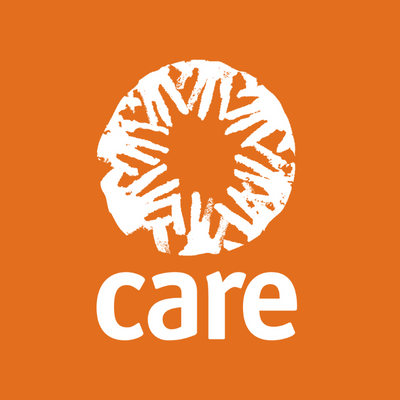Project Manager: CARE International in Zimbabwe

Website CAREGlobal CARE International in Zimbabwe
Apply by 27th March 24
CARE is a leading humanitarian organization dedicated to fighting poverty and social injustice with a special emphasis on women and girls. CARE began working in Zimbabwe in 1992 in response to severe regional drought and has since expanded programming to address longer-term development issues. The organization seeks to recruit outstanding candidates who are known for their excellence, professionalism, integrity and who are
committed to providing support to the country office. Interested candidates are encouraged to apply for the position posted below:
ABOUT THE PROJECT
The Road2Resilience project is a resilience project aimed at addressing human-wildlife conflict in Zimbabwe and Zambia. The project focuses on promoting coexistence between local communities and wildlife populations, while enhancing community resilience and sustainable development.
Project: ROAD2RESILIENCE
POSITION SUMMARY
The Project Manager – ROAD2RESILIENCE is a key leadership role responsible for overseeing the implementation of a consortium project aimed at addressing human and wildlife conflict in Zimbabwe and Zambia. The project manager will coordinate with consortium partners, government agencies, and local communities to develop and implement strategies for conflict resolution, conservation, and sustainable development.
RESPONSIBILITIES
1. Local Coordination and Consortium Project Leadership
- Lead and coordinate the local implementation of the CARE component within the consortium collaborating with partners focusing on addressing human and wildlife conflict in Zimbabwe and Zambia.
- Facilitate stakeholder engagement and community consultations through establishment of local task committees to ensure local participation and ownership in conflict resolution efforts.
2. Program Planning and Implementation
- Develop a comprehensive program work plan that outlines specific strategies and activities to address key aspects of human and wildlife conflict.
- Implement community-based initiatives, including awareness campaigns, community trainings, and livelihood diversification programs.
- Collaborate with local partners and conservation organizations to implement effective measures for wildlife conservation, such as habitat restoration and protected area management.
- Collaborate with consortium partners to develop a comprehensive risk management strategy to anticipate and address potential challenges that may hinder program implementation.
3. Team Management and Supervision
- Manage and provide leadership to the CARE Zimbabwe program team under the project.
- Develop and implement a capacity-building plan to enhance the skills and knowledge of team members in conflict mitigation and conservation practices.
- Conduct regular performance evaluations, provide feedback, and identify opportunities for professional development.
4. Government and Donor Relations
- Develop and maintain strong relationships with relevant government agencies, including the Ministry of Environment, Climate and Wildlife Zimbabwe and The Department of National and Wildlife (DNPW) under the Ministry of Tourism and Arts in Zambia.
- Advocate for policy reforms and regulatory measures that promote coexistence between human communities and wildlife with government agencies and relevant line ministries.
5. Program Reporting and Budget Management
- Monitor the utilization of program budget and resources, ensuring efficient allocation and adherence to financial guidelines.
- Lead the establishment of a robust monitoring and evaluation system to track program progress, outcomes, and impacts related to human and wildlife conflict.
- Prepare and share comprehensive program reports and documents with key stakeholders adhering to reporting guidelines and formats specified by CARE, the Ministry of Environment, Climate and Wildlife Zimbabwe, The Department of National and Wildlife (DNPW) and the donor.
- Contribute to knowledge sharing platforms and networks to disseminate project outcomes, best practices, and innovative approaches in human and wildlife conflict resolution with government and donor stakeholders.
QUALIFICATIONS:
- Bachelor’s or master’s degree in environmental science, conservation biology, natural resource management, or a related field.
- Proven experience (at least 5 years) in managing and implementing conservation or development programs, with a focus on addressing human and wildlife conflict.
- Experience in implementing/managing projects in any of the country wildlife reach districts and previous programming.
- Familiarity in promotion of community-based biodiversity and sustainable management and utilization reduction of human-wildlife conflict and knowledge on models/approaches that have been used in Zimbabwe.
- Experience in promoting livelihood activities in dryland areas of Zimbabwe including use of non-forest timber projects.
- Fluent in local languages spoken in Northern Matabeleland will be a definite advantage
Application Procedure
Step 1: Click Here to complete the application form.
Step 2: Submit application by the 27 th of March 2024 on this Link
Kindly note that you need to complete both steps or your application will be considered void.
There are individuals who may use CARE’s name and trademark in emails and on websites to solicit fees from interested jobseekers. CARE does not use recruiting or placement agencies that charge candidates an up-front fee of any kind. Occasionally, CARE does employ recruiting or placement agencies to help us identify candidates for specific employment within CARE. If you’re contacted by a legitimate recruiting or placement agency, there should be no charge to you. If you suspect that you have been a victim of fraud from someone purporting to be CARE, please contact us at legal@care.org. We provide equal employment opportunities (EEO) to all employees and qualified applicants for employment without regard to race, colour, religion, gender, gender identity, ancestry, national origin, handicap, disability, marital status. CARE is committed to preventing any type of abuse, exploitation and harassment in our work environment and programming, including sexual abuse, exploitation, and harassment.
To apply for this job please visit jobs.smartrecruiters.com.


